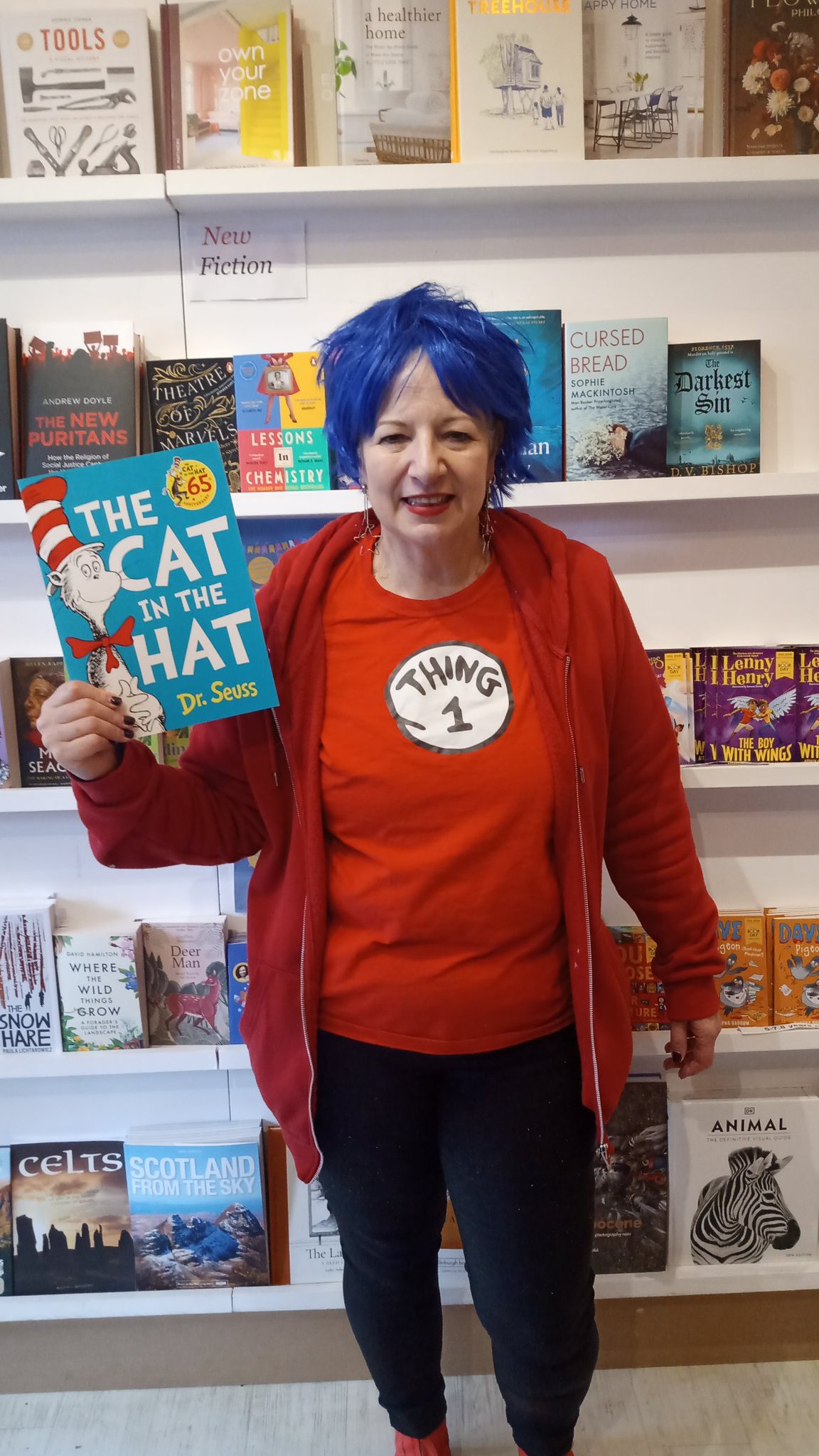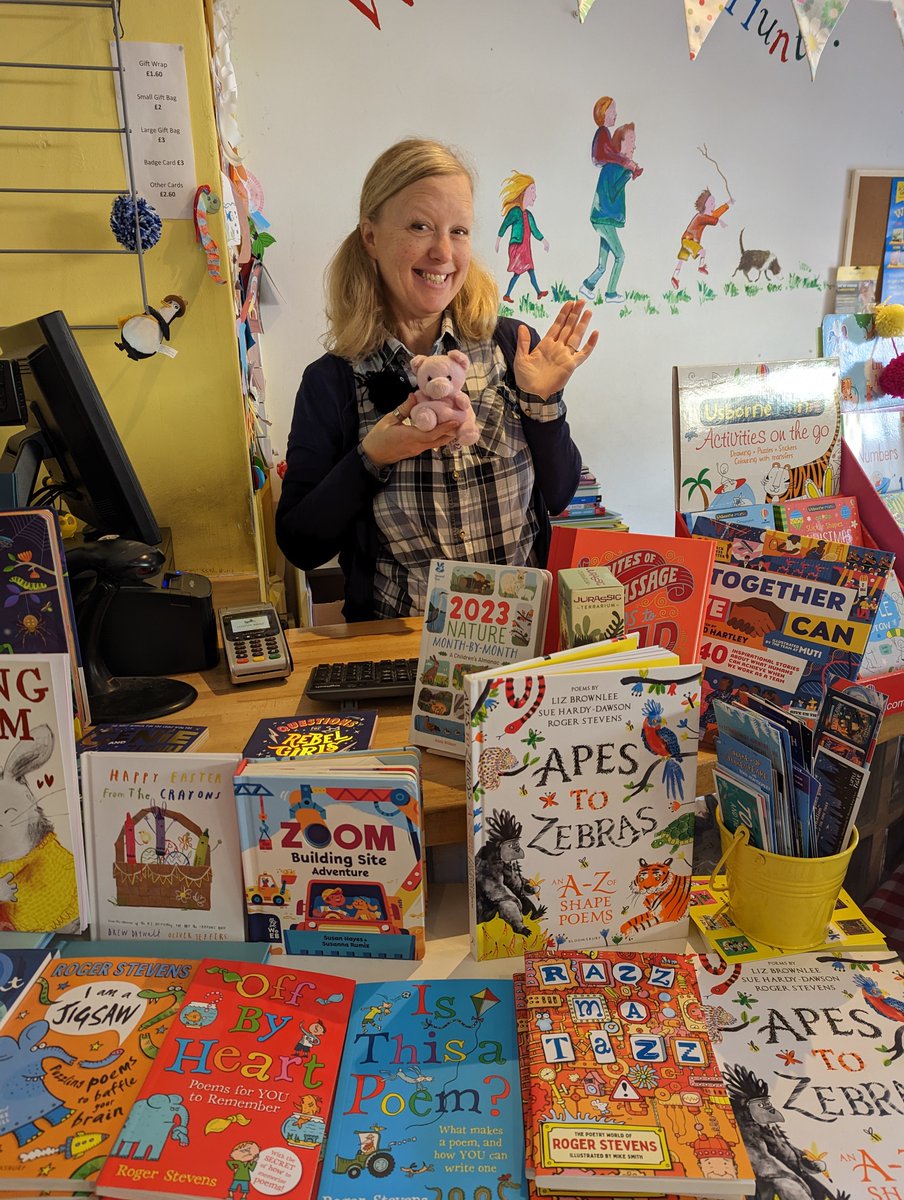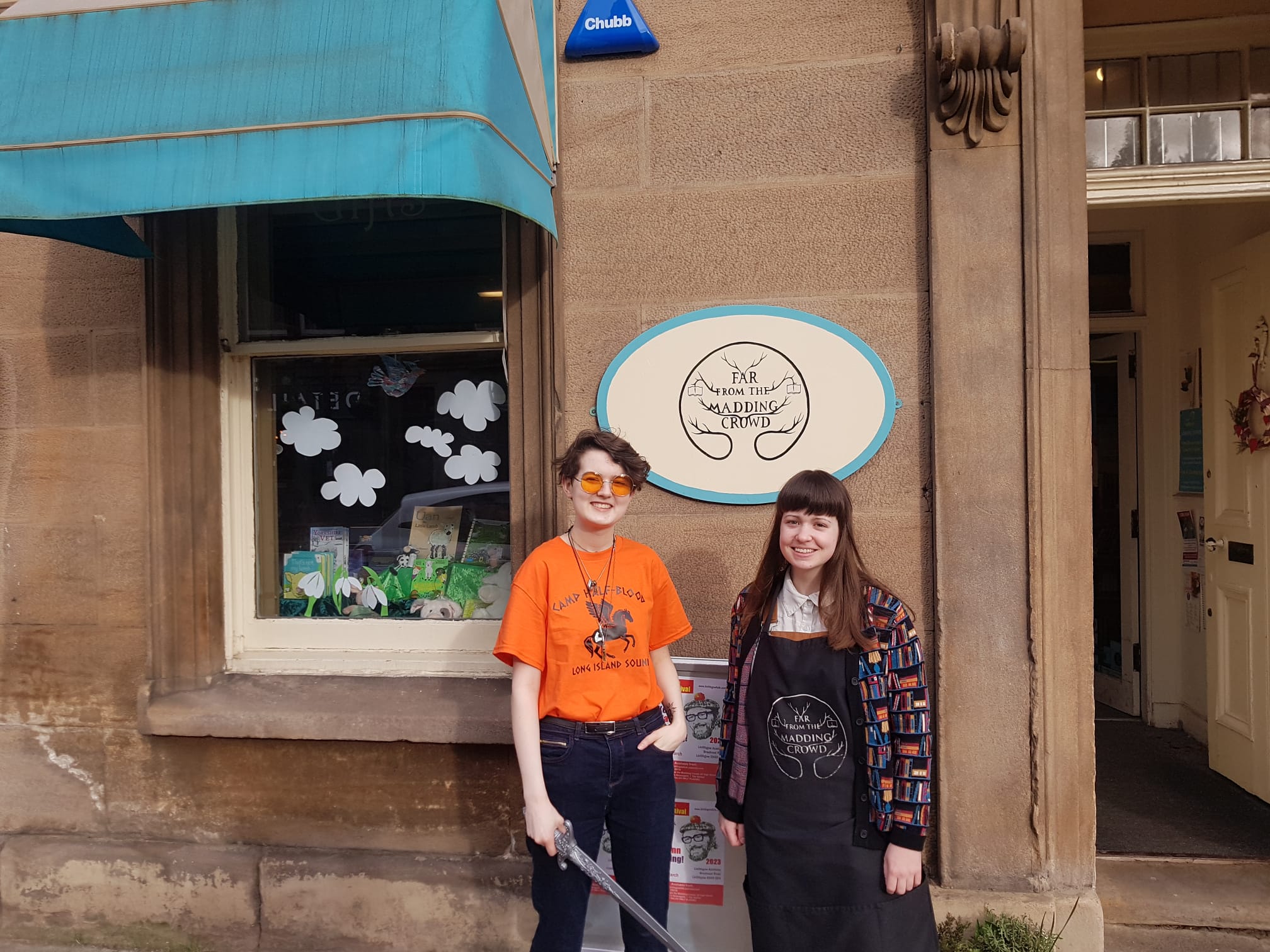Notes from Wi2023: Used & Remainder Books; E-Commerce; Batch; Wellbeing
 Among the many educational sessions held during Winter Institute 2023 last week in Seattle, Wash., were ones that addressed used and remainder books, selling more books online, Batch, and mental, physical and emotional wellbeing. Here we offer highlights from those events:
Among the many educational sessions held during Winter Institute 2023 last week in Seattle, Wash., were ones that addressed used and remainder books, selling more books online, Batch, and mental, physical and emotional wellbeing. Here we offer highlights from those events:
Diversifying with Used and Remaindered Books
In a panel discussion about adding used and remaindered books to a store's inventory, Kevin Ryan of Green Apple Books in San Francisco, Calif., mentioned that the supply of used books is "not as robust as it used to be."
Fewer used books are coming through the door, and for a store that is predominantly used, it can be a bit of an issue making the store look as full as it once did. To adjust to the thinning supply, Ryan and the Green Apple team have started shelving more books face out and treating them as art objects and even brodarting (applying plastic covers) them. At the same time, the prices that the store can charge for used books has also gone down--a book that Green Apple might have charged $9 for five or six years ago is "now $6."
During the panel's q&a portion, a bookseller with Half Price Books attested that the used book supply was "dwindling." While neither she nor Ryan could say exactly why fewer used books are available, Ryan did float the idea that the proliferation of e-books might partly be responsible.
On the subject of getting started with remaindered books, Gary Lovely of Prologue Bookshop and the Book Loft of German Village, both in Columbus, Ohio, said he typically buys from three of the larger remaindered book companies: Book Depot, Book Country and Texas Bookman (which is owned by Half Price Books).
Each retailer has its own strengths, with Lovely noting Texas Bookman's selection of art books, and Book Depot's generally robust metadata and "deep, deep sales," and many remainder companies also carry a variety of sidelines. Inventory turns over pretty rapidly on many of those sites, and according to Lovely around 8 p.m. in the evening is a good time to check. Lovely added that he's had a lot of success selling remaindered books as a vendor at festivals that aren't book related, and remaindered books are "great for kids."
And asked about remaindered book shows, Lovely and Ryan agreed they were worth visiting for booksellers interested in carrying remaindered titles.
---
Most of the news about numbers of bookstores during the pandemic has been good. The American Booksellers Association noted that membership increased by 20% as of last June since 2020, when 35 stores opened and 57 closed. Still, in 2021, while some 41 stores closed, 215 opened, a trend that continued last year, when 50 stores closed and 203 opened.
---
 |
|
| Bookshop.org founder Andy Hunter | |
Supercharge Your E-Commerce
In 2022, independent bookstores had online sales of $100 million compared to $15 million in 2019, a rise of more than sixfold, according to Bookshop.org founder and CEO Andy Hunter. The $100 million includes sales by indie bookstore e-commerce sites on IndieCommerce ($42 million), on Bookshop ($40 million) and by indie booksellers on other platforms. The $100 million represents about 2.5% of Amazon's estimated book sales of $4 billion.
Despite the quick growth, much of it attributable to the pandemic, Hunter emphasized that indie online sales are "a fraction of what they could be" and suggested that indie online sales should mirror indies' overall share of the market, which is about 12%, or about $500 million a year. He added, too, that indie online sales don't cannibalize in-store sales; most are sales that would have been made "at night" by customers on Amazon.
Hunter was warmly received by booksellers in the audience, a contrast to the reception three years earlier in Baltimore, when Bookshop was about to launch and many booksellers regarded it with suspicion. But when Covid arrived several months later, Bookshop became a lifesaver for many stores, a fact several in the audience mentioned.
Among other statistics Hunter offered:
- In 2021, 29% of bookstore revenue came from e-commerce, up from just 1% in 2019.
- Online customer traffic is up 182% in 2022 over 2019.
- Half of online orders get picked up in-store, meaning that stores should offer and promote in-store and curbside pickup.
- In 2019, for each book shipped to a customer by an indie bookstore, Amazon shipped 250. In 2022, the ratio changed to 50:1.
Among other tips and practical advice given during the session, the ABA's Phil Davies, Indiecommerce director, recommended that booksellers use Google Analytics to understand their e-commerce business better. Hunter suggested booksellers use original copy on their e-commerce sites and such things as dated lists ("Best YA 2023," for example) to make sure stores appear high up on Google users' bookstore searches.
Hunter urged any ABA member bookstore that has not signed up to be in the Bookshop profit pool to do so. (10% of the sales from Bookshop affiliate members goes to booksellers in the pool; for bookstores that link with Bookshop, 30% of sales go to the stores.)
---
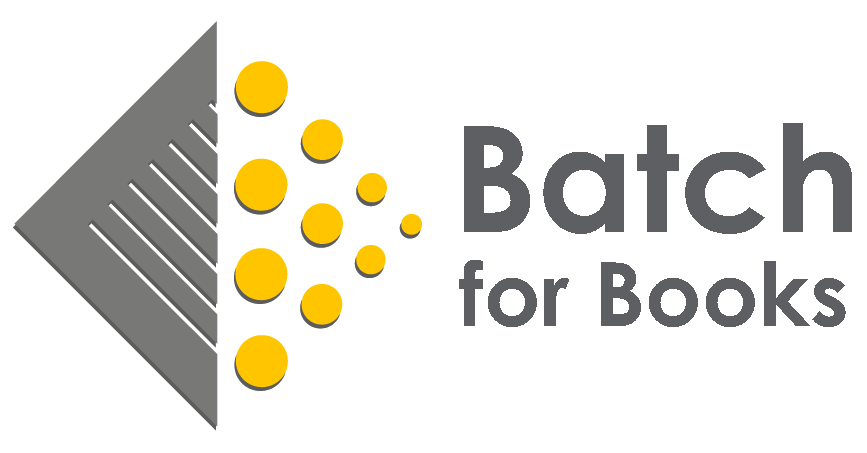 Batch
Batch
Nathan Halter of Batch gave an update on the digital clearinghouse for publisher payments that has been very popular in the U.K. and was launched in the U.S. in 2020. So far adoption levels in the U.S. have been slow. Currently three U.S. publishers are using Batch: Penguin Random House, HarperCollins and Macmillan, and Batch would like many more to join. Gardners U.S., the U.S. arm of the major U.K. wholesaler launched last year, is in the process of joining Batch.
At the same time, 150-160 U.S. booksellers are actively using Batch, with some 25 more currently coming on, and more hoped for. "We need more bookstores and more publishers on board," Halter said. "It's a challenge that we're navigating."
Already, in 2022, Batch has processed and remitted 222,000 individual invoices. Booksellers who use Batch are recommending it to other booksellers, which is leading to more and more adoptions. Batch is free for booksellers.
Two booksellers on the Batch session panel gave rave reviews for Batch. Nic Bottomley of Mr. B's Emporium of Reading Delights, Bath, England, and executive chair of the Booksellers Association of the U.K. and Ireland (owner of Batch), said he pays 96% of invoices through Batch, which is widely used in the U.K., and needs only an hour a month to reconcile everything. Batch allows for easy payment and organizing of invoices and credits, and does away with spreadsheets and other laborious ways of handling invoices.
Christine Onorati, owner of WORD bookstores in Brooklyn, N.Y., and Jersey City, N.J., and president of the ABA, whose stores have been using Batch, praised Batch and "how it works with QuickBooks." She called Batch a major money- and time-saver and said the learning curve "not an involved process."
Bookselling and Mental, Physical and Emotional Wellbeing
On the last day of Wi2023, Onorati, who is also a therapist, led a discussion with Dr. Corey Yeager, a marriage and family therapist and author of How Am I Doing? 40 Conversations to Have with Yourself, about managing one's mental, physical and emotional wellbeing.
In response to an audience question about resentment forming between a bookstore's full-time and part-time employees, Yeager described a work space as a broad system containing numerous subsystems within it, and said things become dangerous when coalitions begin to form, sometimes as small as "three or four people against those one or two."
Naturally, friction starts to build, and he suggested a good place to start addressing it is naming those coalitions and those struggles. Onorati agreed on the importance of "giving this stuff air," mentioning a situation at her stores when a divide formed between people allowed to work off the floor in the office and those who had to stay on the sales floor. Yeager also emphasized the need for everyone within the system to have clarity about their own role, and the individual assigning different roles should make them clear to the entire team.
When asked about how better to prioritize one's physical wellbeing, Yeager acknowledged that when people get busy and stressed, physical wellness is often one of the first things to fall by the wayside. People believe they're so busy they don't even have "time to think about those things," but eventually, "your body will stop you. Your body will say I can't take it." He advised intentionally building that time into one's day, noting that if exercise is viewed as something integral rather than something extra, it won't be so easily dropped.
Onorati said in some ways it "comes down to boundaries." Booksellers often get caught up in narratives about being too busy to eat, drink water or even use the bathroom during a shift. She encouraged booksellers to challenge those narratives and consider setting boundaries for themselves such as, "I can't be a good employee today until I've had a walk." --Alex Mutter and John Mutter





IPC.0204.S3.INDIEPRESSMONTHCONTEST.gif)




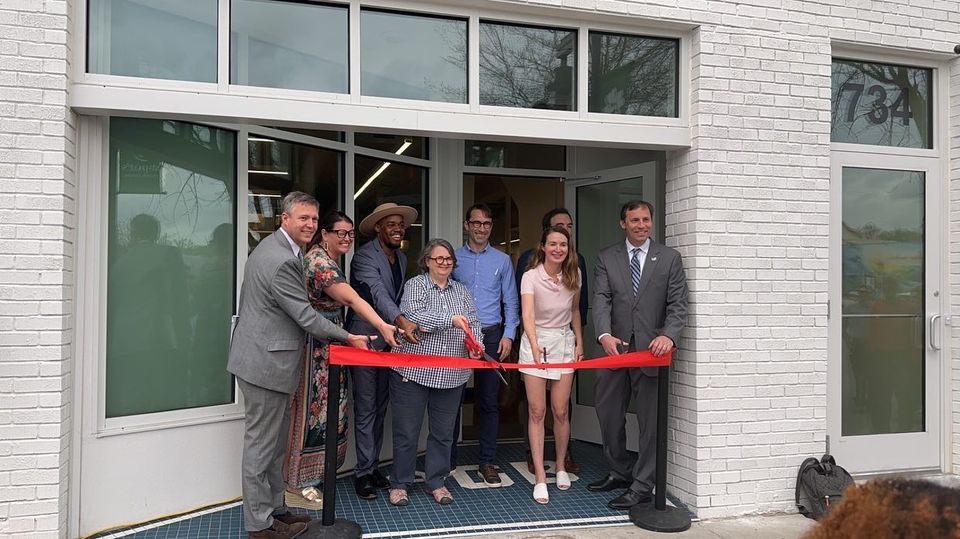
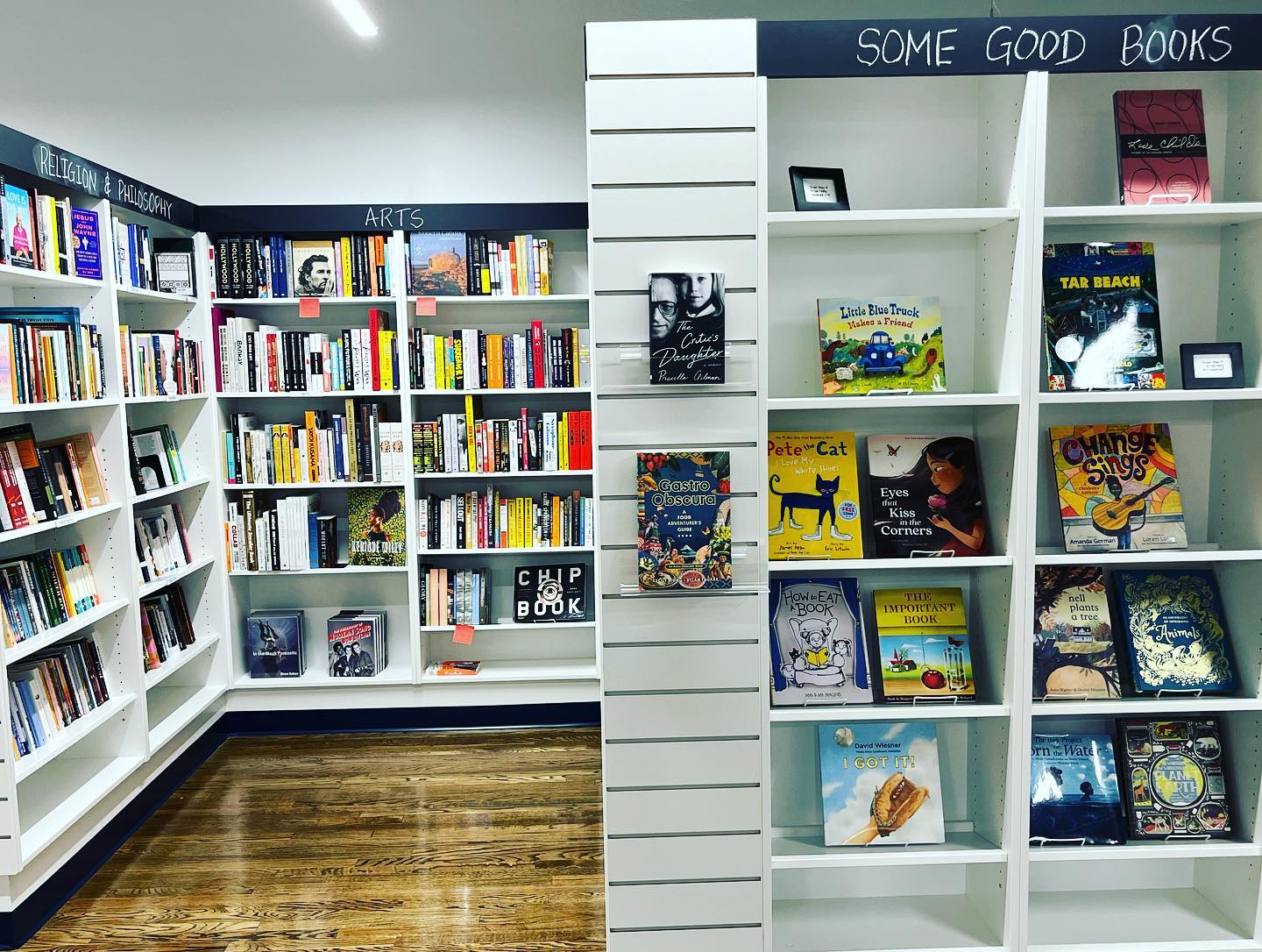 "I think it was a great proof-of-concept that people are really excited about and want an independent bookstore in Columbia," Wallace observed. "We set a very ambitious goal with the Kickstarter, but it was a goal that would raise money for us to invest in the best version of an independent bookstore with a lot of shelves that we could fill with a lot of cool books."
"I think it was a great proof-of-concept that people are really excited about and want an independent bookstore in Columbia," Wallace observed. "We set a very ambitious goal with the Kickstarter, but it was a goal that would raise money for us to invest in the best version of an independent bookstore with a lot of shelves that we could fill with a lot of cool books." 
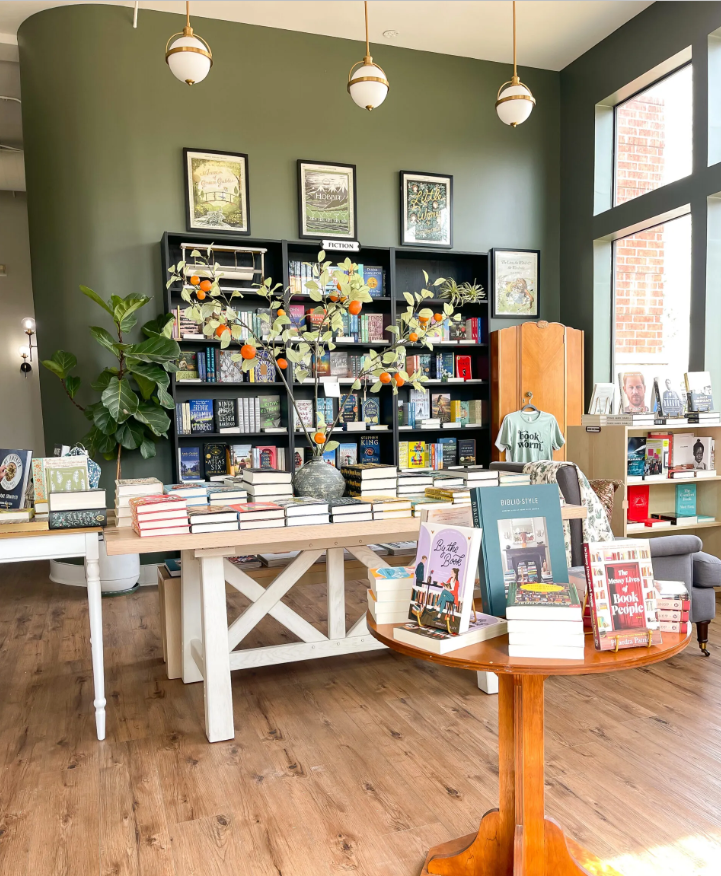

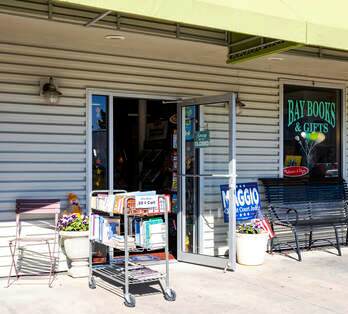
IPC.0211.T4.INDIEPRESSMONTH.gif)
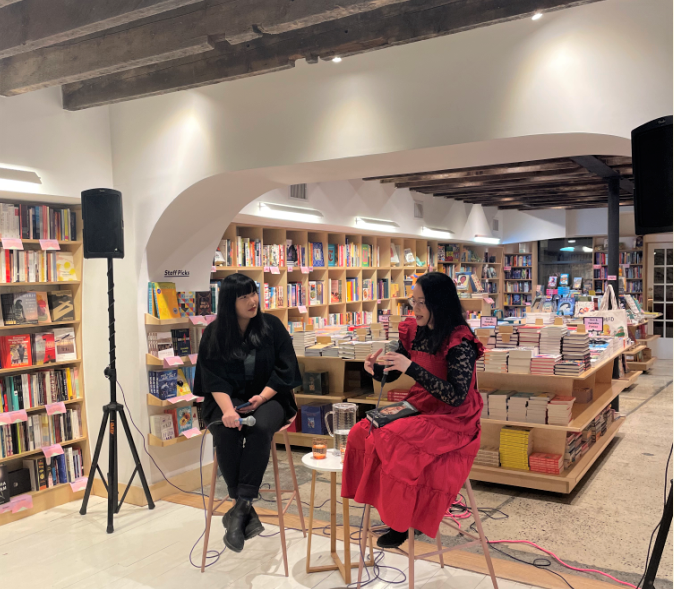
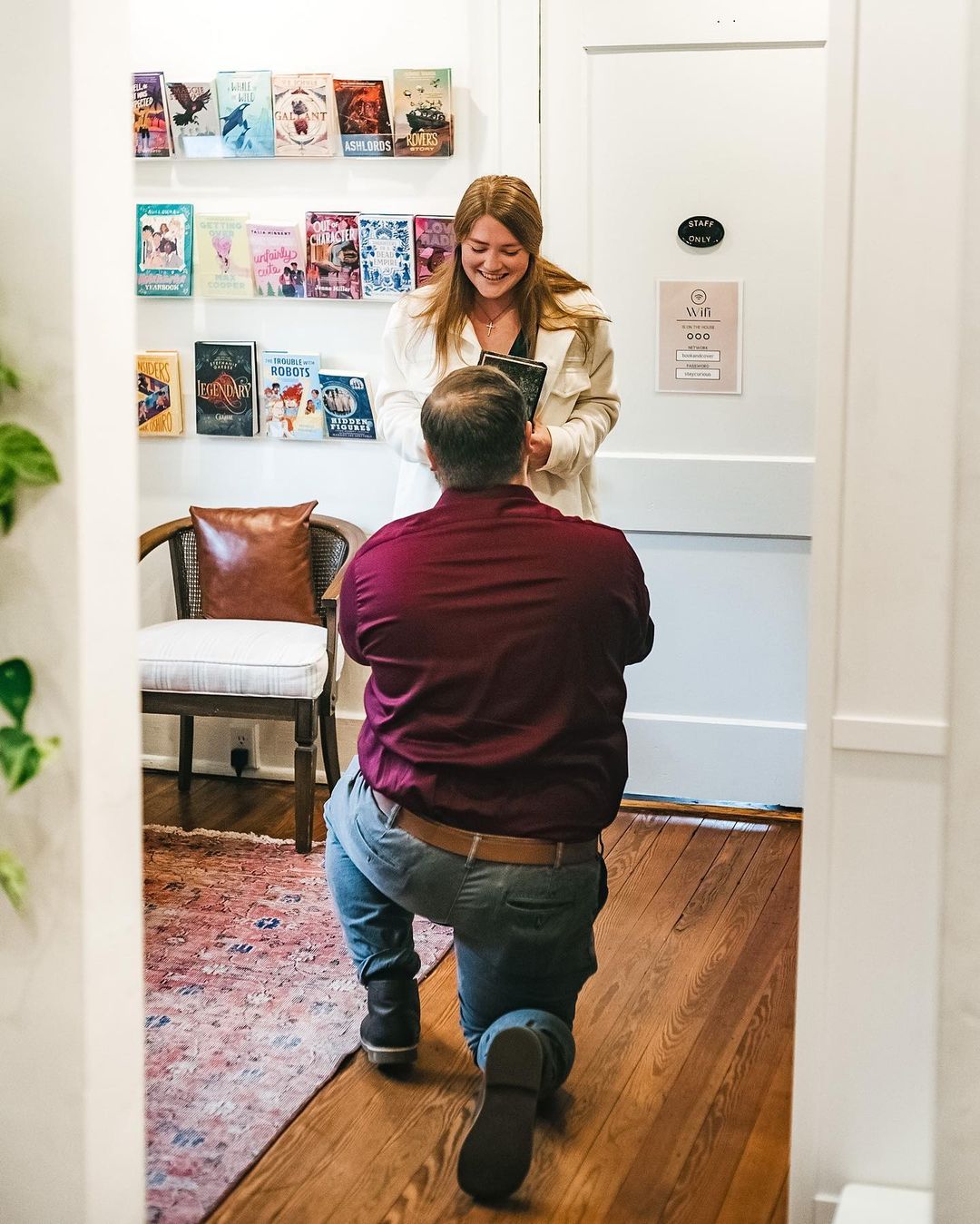 "
"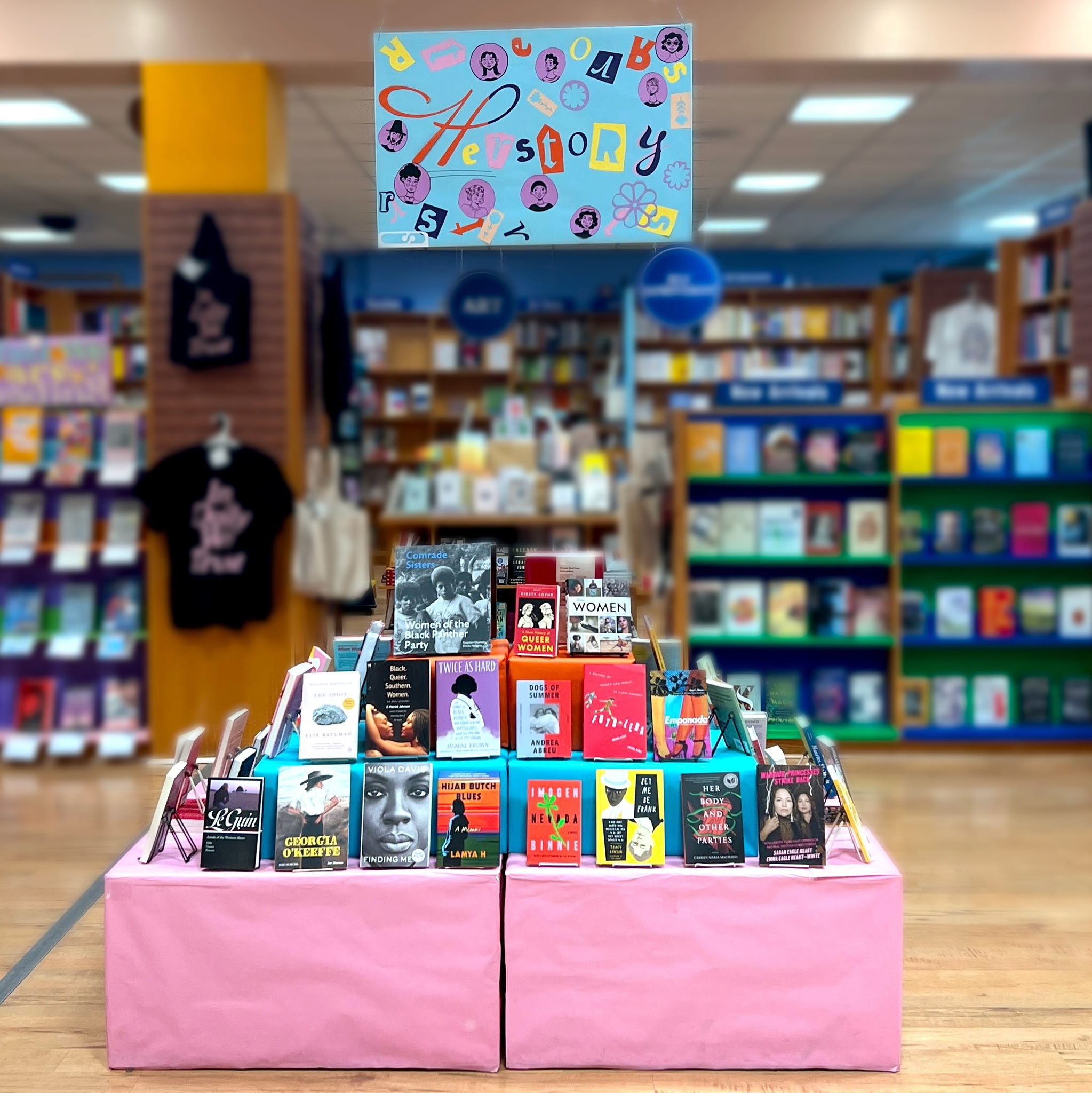 "What are you reading during Women's History Month?" asked
"What are you reading during Women's History Month?" asked 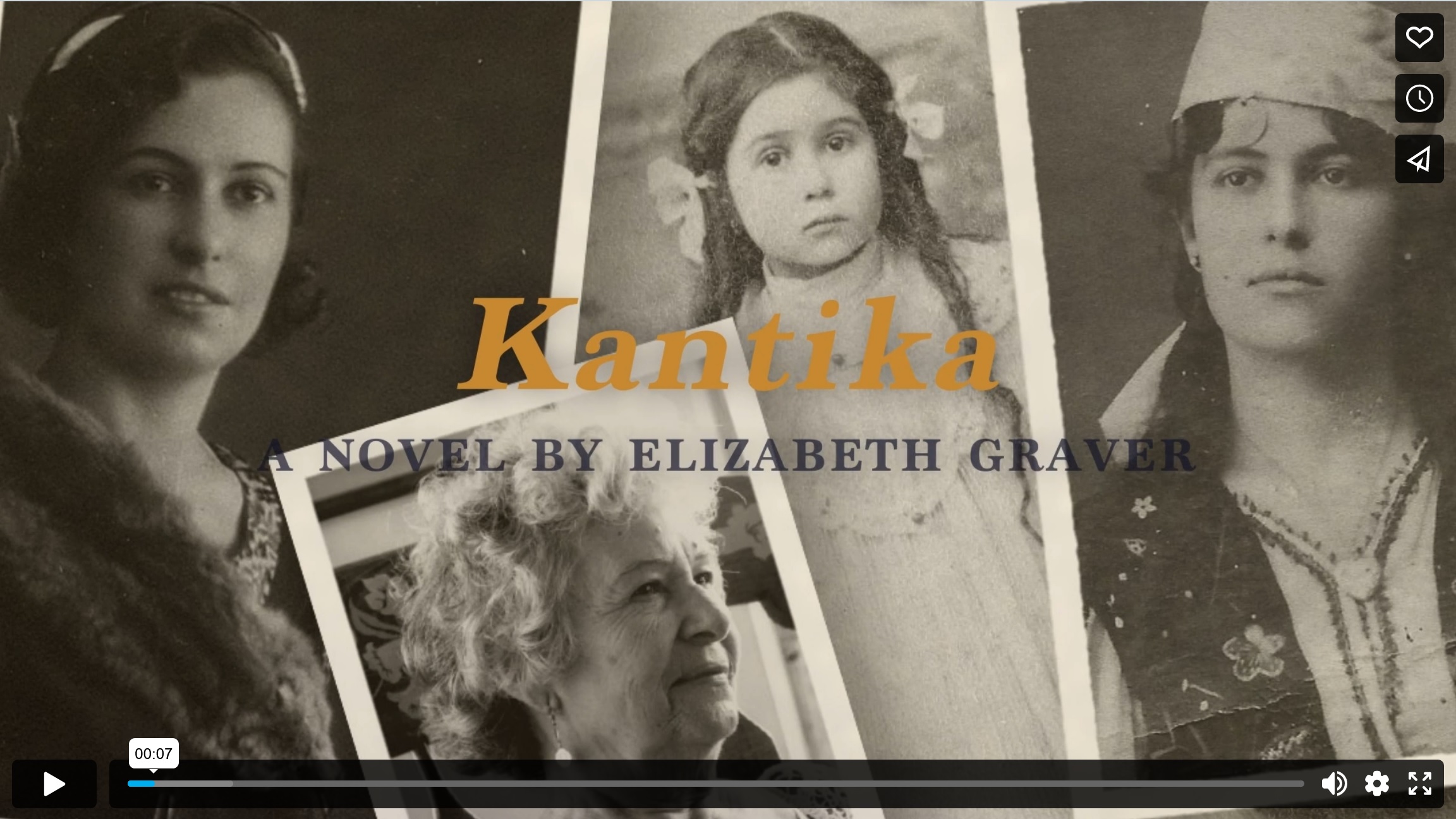 Kantika: A Novel
Kantika: A Novel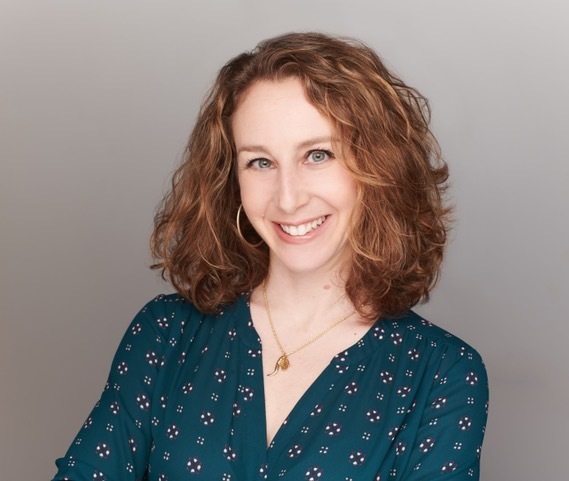
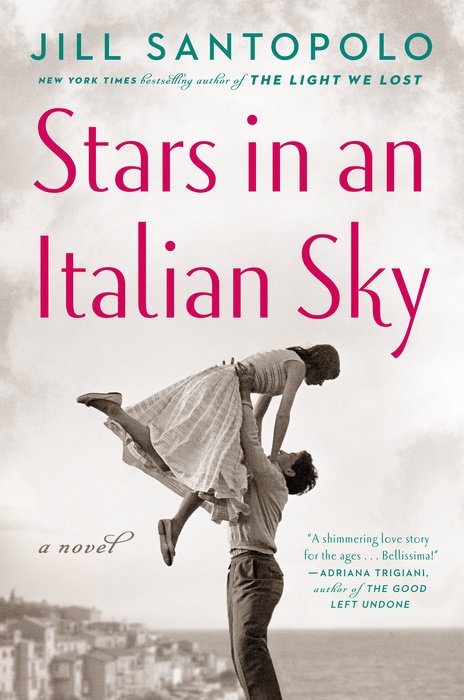 Book you're an evangelist for:
Book you're an evangelist for: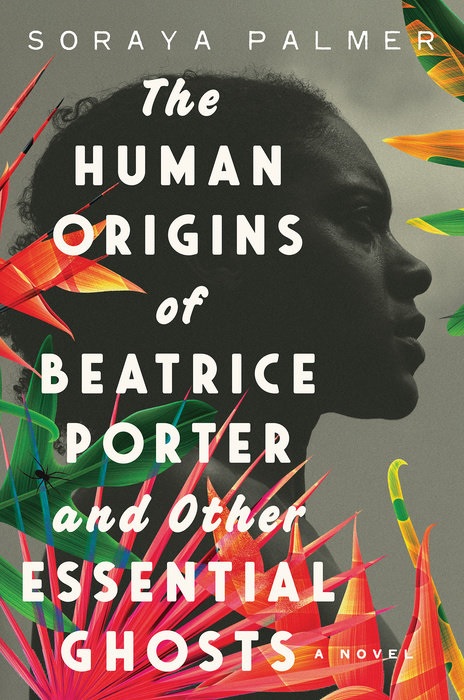 The Human Origins of Beatrice Porter and Other Essential Ghosts is Soraya Palmer's first novel, a phantasmagoric interweaving of family and folktale. Readers first meet two sisters, Sasha and Zora, when they are young girls in Brooklyn's Flatbush, dealing with the household complexities of their father Nigel's violence and infidelity and their mother Beatrice's headaches and distance. Soon this timeline meanders to visit Nigel and Beatrice as children in Jamaica and Trinidad, respectively, and then as a young couple. These individual and family histories blend with folktales of Anansi (spider, god, man, woman, trickster storyteller), demons and exorcisms. The Rolling Calf haunts butchers, and Mama Dglo is the protector and mother of the ocean and "all things water," among other mythical tales. The narrator of these time-jumping tales, with the repeating refrain "Let me tell you a story," is mysterious, driven by motivations not always clear nor necessarily reliable--but always concerned with the power of storytelling itself: "You see I am what they call Your Faithful Narrator, found in places the West calls fairy tales, what men call gossip, what children call magic." Small actions can be revolutionary: "They realize there is nothing more dangerous than a story with an owner that no one can touch."
The Human Origins of Beatrice Porter and Other Essential Ghosts is Soraya Palmer's first novel, a phantasmagoric interweaving of family and folktale. Readers first meet two sisters, Sasha and Zora, when they are young girls in Brooklyn's Flatbush, dealing with the household complexities of their father Nigel's violence and infidelity and their mother Beatrice's headaches and distance. Soon this timeline meanders to visit Nigel and Beatrice as children in Jamaica and Trinidad, respectively, and then as a young couple. These individual and family histories blend with folktales of Anansi (spider, god, man, woman, trickster storyteller), demons and exorcisms. The Rolling Calf haunts butchers, and Mama Dglo is the protector and mother of the ocean and "all things water," among other mythical tales. The narrator of these time-jumping tales, with the repeating refrain "Let me tell you a story," is mysterious, driven by motivations not always clear nor necessarily reliable--but always concerned with the power of storytelling itself: "You see I am what they call Your Faithful Narrator, found in places the West calls fairy tales, what men call gossip, what children call magic." Small actions can be revolutionary: "They realize there is nothing more dangerous than a story with an owner that no one can touch."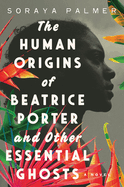
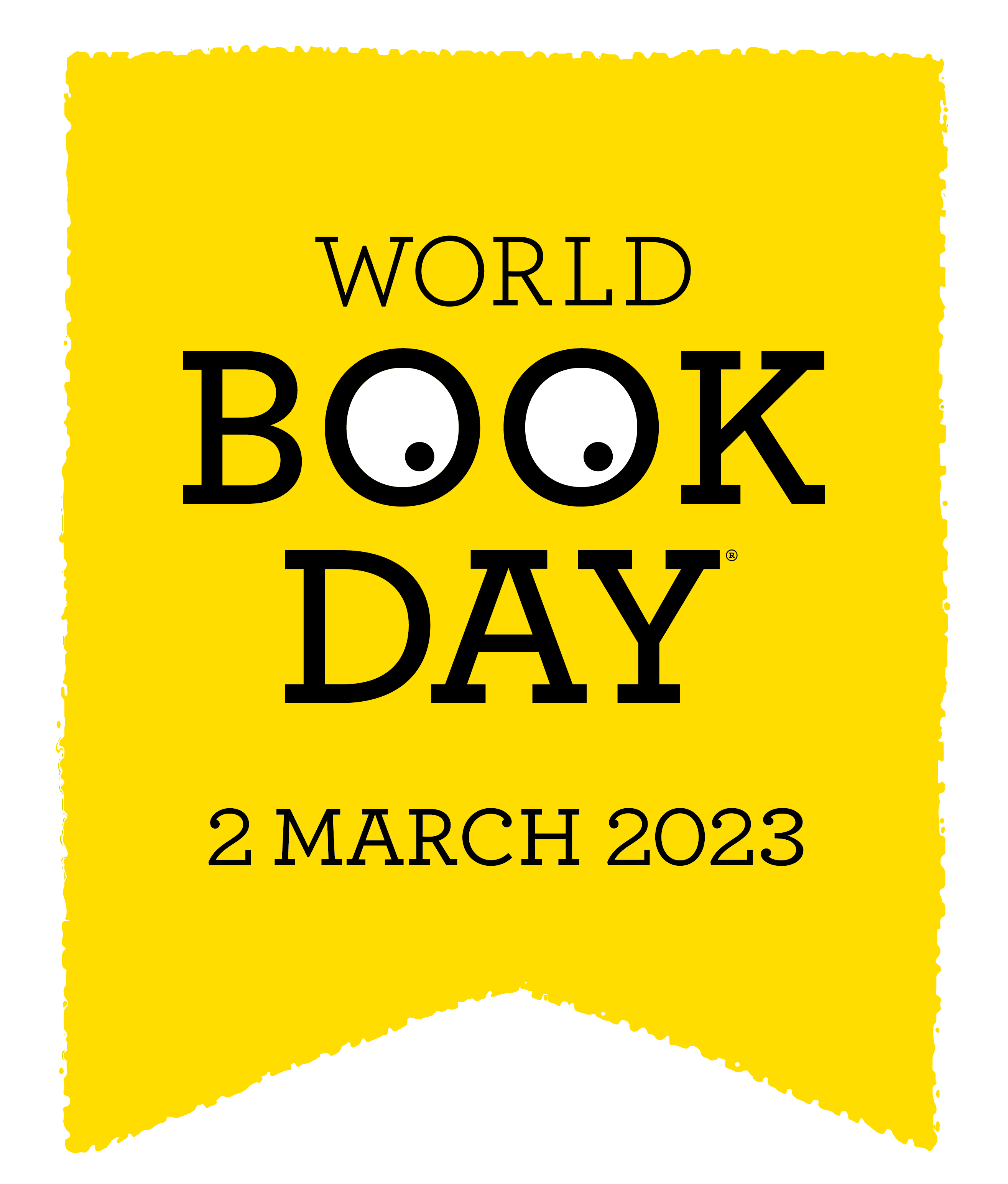 It's a dreary, early March day here, with a snowstorm looming as a weekend treat, so it seems an opportune time to write about something fun, like reading for pleasure. Yesterday (March 2), the U.K. and Ireland celebrated
It's a dreary, early March day here, with a snowstorm looming as a weekend treat, so it seems an opportune time to write about something fun, like reading for pleasure. Yesterday (March 2), the U.K. and Ireland celebrated 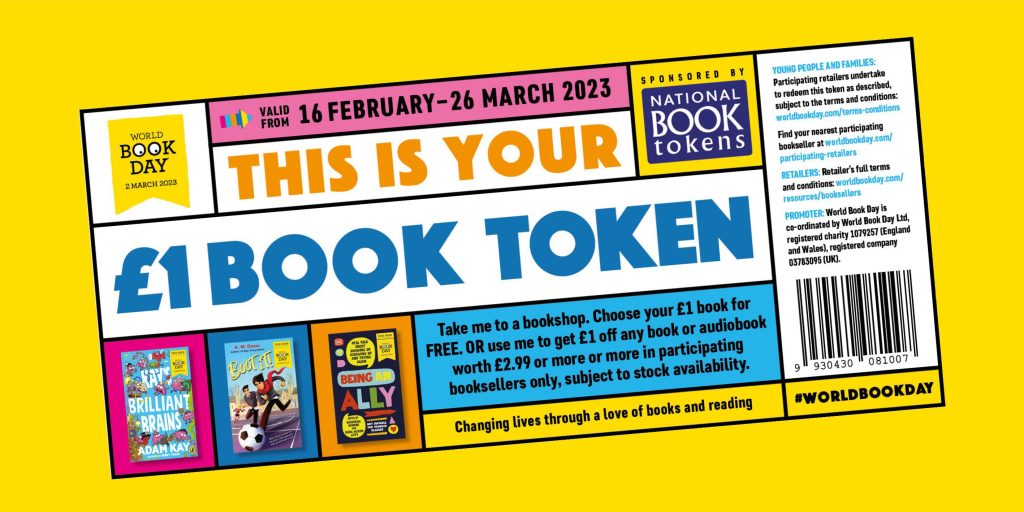 NLT data also found that children and young people who take part in WBD activities enjoy reading more than their peers who don't, and 54.7% read more books as a result of the initiative. Last year, the charity distributed 50 million £1 book tokens through schools, nurseries, magazines and partnerships.
NLT data also found that children and young people who take part in WBD activities enjoy reading more than their peers who don't, and 54.7% read more books as a result of the initiative. Last year, the charity distributed 50 million £1 book tokens through schools, nurseries, magazines and partnerships.